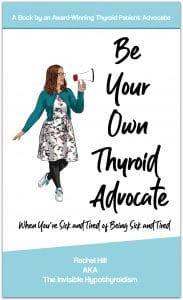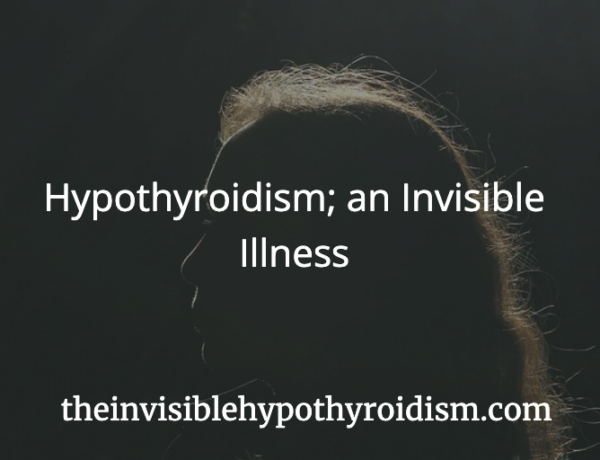Originally published on 1st January 2017 Last updated on 10th December 2024
I’m writing this blog post after Christmas Day, having overindulged in sugary food I wouldn’t usually and spending the last few days feeling grateful for the friends and family in my life who have made the festive season special.
However, now that Christmas is (sadly) over, we’re approaching New Year celebrations, which always gets us reflecting over the past year, what the high and low points have been and what (if any) resolutions we may make for the next year.
I have mixed feelings about New Year’s Resolutions. I always think – why wait until the beginning of a new year to make any changes or ‘improvements’ to your life?
A year is just a period of time. Why waste time by putting things off, when, as soon as tomorrow, we could have already made progress?
No-one wishes they would have done anything later, but often wish they had done it sooner.
For me, a lot of the goals I set myself or resolutions if you wish, are based around my health, since I live with Hashimoto’s and Hypothyroidism, which have changed my life.
Whether it’s to try a new diet change, a supplement, find a new doctor, try a new exercise or somehow change up my routine, it’s had to be me who decides to commit to it and then actually go for it.
So as we’re approaching the most popular time of year for people to make resolutions and reflect on the last twelve months of their life, I wanted to inspire you to think about your health and wellbeing.
Perhaps your health – physical and/or mental – has been wobbly this year. Maybe it’s been very up and down and there’s been some serious bumps. Hypothyroidism and Hashimoto’s especially can present as flares that catch us off guard.
But there are some things you can do to give yourself a better chance at next year being an improved one for you and your thyroid health.
1. Find a New Doctor
Whether you’re in a country with a national health service or on a paid healthcare plan, you are entitled to a doctor who listens to you, understands what it is you’re saying and does the best for you. One of the most important things you can do for yourself is to find a good doctor.
An endocrinologist, GP, functional practitioner, naturopath etc. or even a combination, can help you on your way to recovery, but every thyroid patient is unique and their path to recovery is too. Different patients find that different types of medical professionals are better than others when it comes to treating their thyroid condition, but it’s up to you to find what works for you and your health. It took me going through nearly all the GP’s at my NHS surgery before I found the right one who would work with me.
I also added a private GP and functional medicine practitioner to my healthcare team at different points.
Read my article about how to find a good medical professional here.
2. Embrace Being Your Own Thyroid Advocate
My first book is all about this.
Whether you’re able to find a doctor that listens to you or not, you should really be learning about your thyroid condition yourself, what it means, treatment options and how to understand your own test results.
Many thyroid patients are even ordering their own tests (which may not be as expensive you think), discovering new medication options and implementing new supplements or lifestyle / dietary changes to see if they help them.
Reading up on hypothyroidism and related conditions in books, articles, medical journals etc. will give you the knowledge you need to become your own advocate and make some changes. You’ll feel empowered and more in control of your health, too.
3. Find The Right Thyroid Medication For You
Finding the right thyroid medication and your optimal dosage is crucial. It may require some experimenting and patience before you find the sweet spot, and other factors such as low vitamin levels or abnormal cortisol levels may also affect it.
Most conventional doctors and endocrinologists only prescribe T4-only medications such as Levothyroxine or Synthroid, which is the inactive thyroid hormone T4, and hope your body converts it to the active thyroid hormone T3, but a lot of us have trouble converting.
So you may need to consider other thyroid medications such as synthetic T3 and natural desiccated thyroid which can work much better. These can be prescribed, but many patients are now unfortunately taking to self-sourcing their own, although this is by no means ideal and carries many risks. Always keep your doctor in the loop.
If you’re struggling to find a doctor who will prescribe alternatives to just T4-only medication, you could also try asking your pharmacist if they know any doctors who prescribe them. I see a private doctor for my NDT prescription.
A study in 2018 showed that T4-only medication Levothyroxine was associated with a lower quality of life in those with Hypothyroidism. [1]
Definitely consider exploring a change in thyroid medication if you’re still feeling unwell on your current one and always get printouts of your results, ensuring a full thyroid panel is being tested. If your doctor won’t order the full thyroid panel, do know that it is relatively inexpensive and simple to order these tests yourself. UK thyroid patients can order them from here and a US link can be seen here.
4. Build A Good Support Network
Having supportive, good people around you when times get tough, who can provide emotional and physical help and support, is really beneficial.
Friends, family, neighbours, coworkers etc. may all be able to offer some kind of support or help to you and you should utilise this. Start to be more honest with them about how you’re doing and how bad thyroid disease can affect you from time to time. There is a book written for our friends and family to help them understand our thyroid condition, here.
Get them to read this open letter if it helps. If you’re a parent with hypothyroidism, this can be extremely difficult to cope with at times, so don’t be afraid to ask for help.
Socialising when you can will help to combat feeling lonely or isolated, and although it’s not always easy to maintain a social life whilst having thyroid disease, you could plan it into a schedule, to make it more manageable in terms of energy levels. Face to face thyroid support groups are also becoming more common, so you could consider joining one close to you.
Online groups and forums can equally provide you with help, support, advice and even useful information to help you on your way to recovery, too. Consider joining my newsletter for the support and guidance you need to take back your health.
5. Be Selfish: Remove The Energy Suckers and Create Boundaries
With all of that in mind, you can also consider removing any people from your life who do the opposite to making you feel good. The energy suckers, the ones who bring you down or make you feel worse. If they cause you any kind of stress or negative emotions, they won’t help you in managing a condition that is so heavily linked to your stress glands, the adrenals. I’ve written about being selfish here.
6. Look At Your Stress Levels
Stress overworks the adrenal glands, which work in balance with the thyroid. Many people with hypothyroidism therefore also have adrenal dysfunction. I’m a firm believer that all of us should be implementing things to encourage low stress levels and good adrenal health, such as relaxation techniques, a good bedtime routine, a good diet and even supplements of essential vitamins and minerals.
Gentle exercise can also be enjoyable and give you the sense of a full, active life and get you out the house. Many people with hypothyroidism enjoy gentle walks, yoga, pilates and swimming. Getting some fresh air and a change of scenery can be very beneficial. Just be sure to listen to your body and take it at your own pace.
Ensure you keep making time for hobbies, whether it includes painting, adult colouring books, sewing, reading, listening to music, photography, writing stories etc. to help keep a good work-life balance, if you also work. If you do work, consider what would make it easier for you to maintain your job but also good health and low stress levels. Chat to your line manager about how you can minimise any stress caused by work.
Also implement a good self care routine. Bubble baths or Epsom salts, reading, walking, can really help us to feel more looked after. Dedicate some time to look after yourself. It’s easy to forget to do this.
I really hope this has provided you with some ideas on what your resolutions for the next year could be. Although we can make changes and decide to act on things at any time of year, saying goodbye to a certain period in our lives can be a good trigger to think about these things.
Wishing you a year (and more, hopefully!) filled with good health days, strength to get through the tougher ones and the courage to embrace being your own thyroid advocate.
What resolutions will you be making?
You can click on the hyperlinks in the above post to learn more and see references to information given.
References:
[1] https://www.healio.com/endocrinology/thyroid/news/online/%7Beb193222-2795-4321-8761-607131d2f743%7D/levothyroxine-therapy-associated-with-lower-quality-of-life-in-hypothyroidism?fbclid=IwAR0Dk8tGRAxB6at_Mc7jgDiPyp0YikRuy6ZmG6yS8CMOz3lPEj67zH_g4vY








